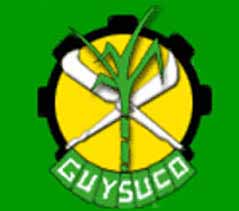The Guyana Sugar Corporation (GuySuCo) had an estimated $3 billion in scrap iron for disposal as at December 2017 and with the scrap metal trade recently reopened, executives of the corporation are questioning if it has already been sold and if so, where is the revenue from that sale.
“We had over $3 billion in scrap metal that was to be given to an individual but that was put on hold because there was a ban. The ban has now been lifted and we don’t know what has happened with the scrap metal, but we know we have not received any money for it,” a senior executive of GuySuCo told Stabroek News last week.
Earlier this month, executives had raised the issue of the corporation’s scrap metal and had questioned why the Special Purpose Unit (SPU) of the National Industrial and Commercial Investments Limited (NICIL) had brought in one person to collect over $3 billion worth of it.
“We understand that one person is supposed to get the contract for over $3 billion in scrap metal from here. We are not even being told who the person is and how it is they came to get that contract,” one executive had said.
The SPU does not respond to questions from Stabroek News.
Over the last two years, as part of the APNU+AFC government’s plans for the divestment of sugar, four estates: Wales, Enmore, Skeldon and Rose Hall, have been taken out of operation and thousands of workers laid off. This was to pave the way for a more efficiently run sector where GuySuCo would keep the remaining three estates and rejuvenate them.
PricewaterhouseCoopers (PwC) had been contracted by the SPU to undertake valuations of GuySuCo’s assets in order to secure prospective investors while the SPU secured, through local financing arranged by Republic Bank Limited, a $30 billion bond.
PwC senior executive Wilfred Baghaloo told Stabroek News that the company “had nothing to do with scrap metals…our focus was to privatise three estates.”
Last March, the SPU had invited Expressions of Interest (EoI) for the sale of scrap metal and equipment, saying it was for export only. The advertisement indicated that scrap metal was at all seven estates in Skeldon, Albion, Rose Hall, Blairmont, Enmore, Wales and Uitvlugt. It said that “EoIs shall be submitted in a plain sealed envelope bearing no identification of the bidder. Each envelope should clearly state “Purchase of scrap metals and equipment for export only” with the specific location on the top left hand corner.”
The advertisement made clear that the metals would be sold on an as is, where is, basis and that it was the buyer’s responsibility to remove them within a reasonable time as agreed by the unit.
Also pointed out was that “NICIL/SPU reserves the right to reject any or all EoIs without assigning any reason whatsoever and not necessarily to award to the highest EOI”.
One month after it took office, in June 2015, the APNU+AFC government had suspended the scrap metal trade following several irregularities and an internal audit which highlighted several issues. The government subsequently moved responsibility for the trade to the Ministry of Business. Under the previous PPP government, it fell under the Central Housing and Planning Authority (CHPA). In 2016, the Ram & McRae firm was contracted to undertake an audit and in its report, pointed out that there was far too much uncertainty surrounding the scrap metal trade and the law governing it is severely outdated.
“The law and the trade need to be completely revamped after consultation with key stakeholders. However, the Government needs to put interim measures in place as the trade is at a standstill while export is temporarily banned,” the report stated.
The report also revealed a string of irregularities, including the mishandling of packing procedures for scrap metal, and the expenditure of millions of dollars in the Scrap Metal Unit within the CHPA.
“There appears no consistent policy towards the trade with the Government opening and closing the trade at will. It is unclear why responsibility for the trade was transferred to the Central Housing and Planning Authority and why no Export Duty is paid under the Customs Act. In our opinion there is a high probability of revenue leakage but because of the inadequate reporting, any estimate is merely speculative,” the report, which was presented to Minister of Finance Winston Jordan, said.
“There seems a total lack of coordination between and among the four agencies involved: the Guyana Police Force, the Ministry of Business, the Scrap Metal Unit and the Guyana Revenue Authority,” it added.
The PPP is still to address the concerns expressed in the audit. Current PPP Presidential Candidate Irfaan Ali was responsible for the CHPA during the 2011-2015 period.
In February 2017, it was announced that Cabinet had approved a temporary restart of the trade, so that exporters can ship their existing stock over a three-month period. A proposal had been taken, in September 2016, to Cabinet by Minister of Business Dominic Gaskin.
Simultaneously, government had drafted a Scrap Metal Bill, designed to regulate the trade, which had seen years of vandalising of telecommunications infrastructure set up by telephone company GTT to the tune of hundreds of millions of dollars. The draft Bill had set out heavy penalties for contravention of offences under an approved Scrap Metal Act, including fines of up to $3 million dollars in some instances and imprisonment for periods of up to a year.
In 2018, two months after the SPU had advertised the sale of GuySuCo’s scrap metals, government gave permission for NICIL to sell the metals, on the condition that it was exported.
It is unclear if NICIL/SPU had the over $3 billion in scrap metal sold and if so, whether it has already been exported.




